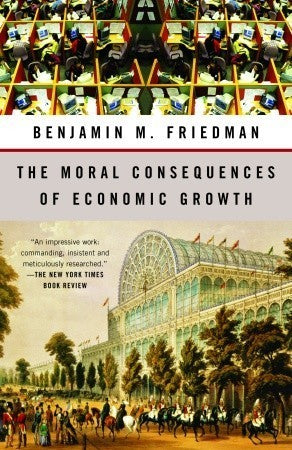This title is currently out of stock. Leave us your email address, we’d let you know when it’s in stock again!
-

A note on book covers: while we do our best to ensure the accuracy of cover images, ISBNs may at times be reused for different editions of the same title which may hence appear as a different cover.
The Moral Consequences of Economic Growth
The Moral Consequences of Economic Growth
Couldn't load pickup availability
In clear-cut prose, Benjamin M. Friedman examines the political and social histories of the large Western democracies–particularly of the United States since the Civil War–to demonstrate the fact that incomes on the rise lead to more open and democratic societies. He explains that growth, rather than simply a high standard of living, is key to effecting political and social liberalization in the third world, and shows that even the wealthiest of nations puts its democratic values at risk when income levels stand still. Merely being rich is no protection against a turn toward rigidity and intolerance when a country’s citizens lose the sense that they are getting ahead.
With concrete policy suggestions for pursuing growth at home and promoting worldwide economic expansion, this volume is a major contribution to the ongoing debate about the effects of economic growth and globalization.
A note on book covers: while we do our best to ensure the accuracy of cover images, ISBNs may at times be reused for different editions of the same title which may hence appear as a different cover.

-
One Line Summary
Economic growth fosters democracy and social progress.
-
Who is this book for?
If you've ever wondered how economic growth influences democracy and societal freedom, this book offers a compelling exploration. Friedman's insights are both broad and detailed, making a clear case that prosperity isn't just material but also vital for political liberty. It’s a thoughtful read for anyone interested in the links between economics and social well-being.

